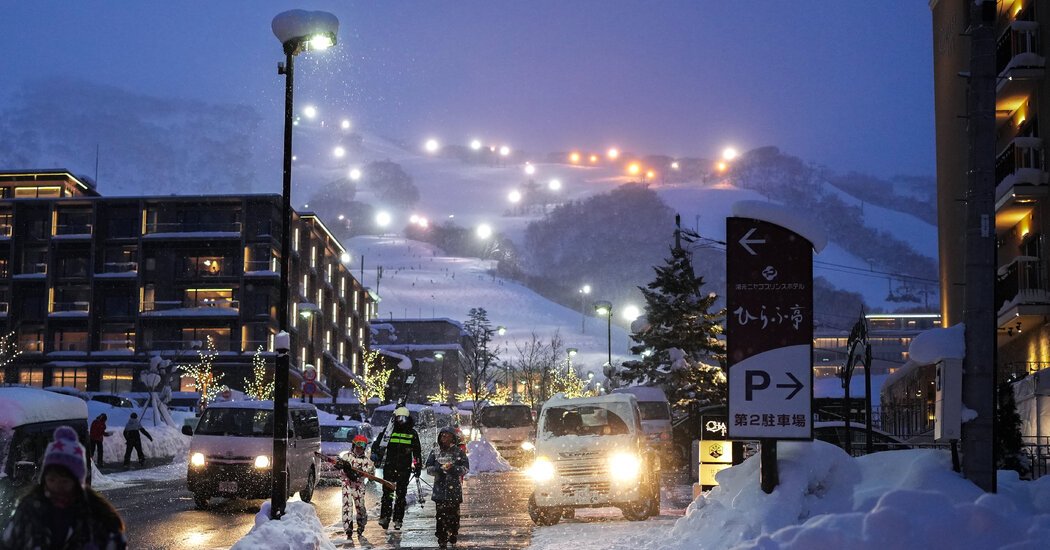Along with its bountiful, gossamer-light snow, the Japanese ski resort area of Niseko has come to be known for luxury hotels charging upward of $2,000 a night and high-end shops selling Moncler and Bogner jackets for even more.
But this season, amid the art galleries and Instagram-ready coffee kiosks, there is another inescapable sight, one that attests to the pandemic’s lingering economic mayhem: “help wanted” ads.
At Tamashii, a bar where dozens of empty liquor bottles hang from the ceiling, fliers advertise jobs for kitchen help, dishwashers and cashiers at about 70 percent above minimum wage. Hanazono, one of four main ski resorts on Mount Annupuri, is offering ski passes, free accommodations and “the best powder, as much as you need” to those willing to fill its openings for ski instructors, shuttle bus drivers, lift operators and rental shop staff. Reju Spa is looking for massage therapists and will offer flight ticket rebates worth $750.
After closing its borders to inbound tourists for two and a half years, Japan finally reopened in October, ending an isolation that was among the longest of any top tourism destination in the world. Since then, international visitors have flooded the Niseko area, seeking to hit its globally renowned slopes.
The reopening, just before ski season, was a blessing for business owners in the area, which encompasses the towns of Niseko, Kutchan and Rankoshi on Japan’s northernmost island, Hokkaido. But it has also produced a perfect storm of challenges as they try to recruit someone, anyone, to fill gaping holes in their staff rosters and provide the kind of service that big-spending visitors expect.
While the area’s year-round local population is only about 25,000 residents, more than 1.3 million tourists could descend on the area between November and March, according to the Kutchan Tourism Association. With the borders only recently reopening, employers who typically hire seasonal workers from abroad have struggled to obtain work visas. The weak yen has also deterred some workers who don’t want to take what amounts to a pay cut.
And within Japan, people are not “interested in the ski industry or willing to spend three months in the snow-packed area,” said Satoshi Nagai, general manager of the Niseko Promotion Board.
The labor shortages have been a boon for workers, who are showered with perks. Markus Timander, 31, who obtained a working holiday visa from Sweden and traveled to Japan in the fall, snagged…
Click Here to Read the Full Original Article at NYT > Travel…
